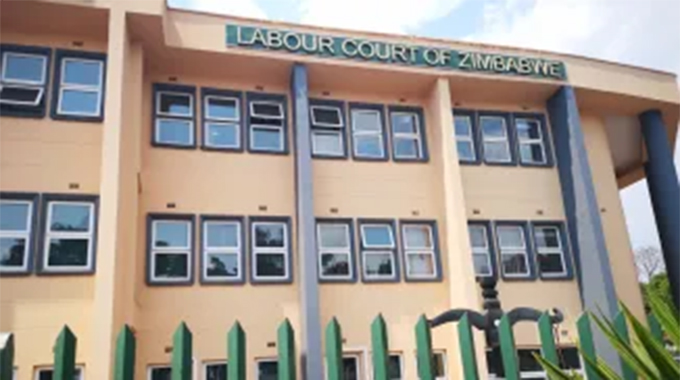Digitisation of Labour, Admin courts in good start

Africa Moyo-Deputy News Editor
THE digitisation of the Labour and Administrative Courts started smoothly in Harare yesterday, in a move that allows people to file or follow their cases electronically.
This marks the second phase of the process to digitise the courts.
Last year, the Judicial Service Commission (JSC) introduced the Integrated Electronic Case Management System (IECMS), which digitised the Constitutional Court, Supreme Court and the Commercial Court.
The Commercial Court became the country’s first paperless court when it was commissioned in May last year.
That first phase of the IECMS also transformed the Constitutional Court and Supreme Court into digital courts.
In an interview yesterday, JSC head of corporate services Mr Daniel Nemukuyu said the digitisation of the Labour Court and Administrative Court started “without any glitches”.
“The court staff had a busy day assisting court users to register with the Integrated Electronic Case Management System,” said Mr Nemukuyu.
“At the Labour Court in Harare, we assisted 84 court users to register with the system. We received five new court cases electronically and we also received 33 requests that we dealt with in terms of the new system.
“The implementation of the second phase of IECMS was a success and our technical team will be operating from the Labour Court and Administrative Court for some days to ensure all people are assisted.”
He said they will continue to monitor progress at the two courts.
In the build up to yesterday, the JSC had been encouraging all court users to register with the system to enable them to litigate in the Labour Court and Administrative Court.
For one to create an IECMS account, they should visit the website, zimiecms.org.zw and an online form, requiring them to fill in some information, will appear on the screen.
Training sessions for court staff and other court users were also done so they familiarised with the new system ahead of the official implementation of the second phase that began yesterday.
Registering entails creating an account within the system, which will be accessible using the passwords provided.
With the account, a person can file a case at any of the active registries.
Under the system, parties to a court case can follow cases from their phones, tablets, laptops or computers as long as they have an internet connection and have registered on the system.
Parties to a case receive a link of the hearing to enable them to follow proceedings in the comfort of their homes, offices or any other places.
Implementation of the IECMS is expected to bring about efficiency, expedite case disposition and deliver access to justice.
It also seeks to minimise corruption, reduce case backlog and prevent the loss and physical damage to documents in a case file.
It enhances information accessibility and modernises the justice sector’s operations.









Comments